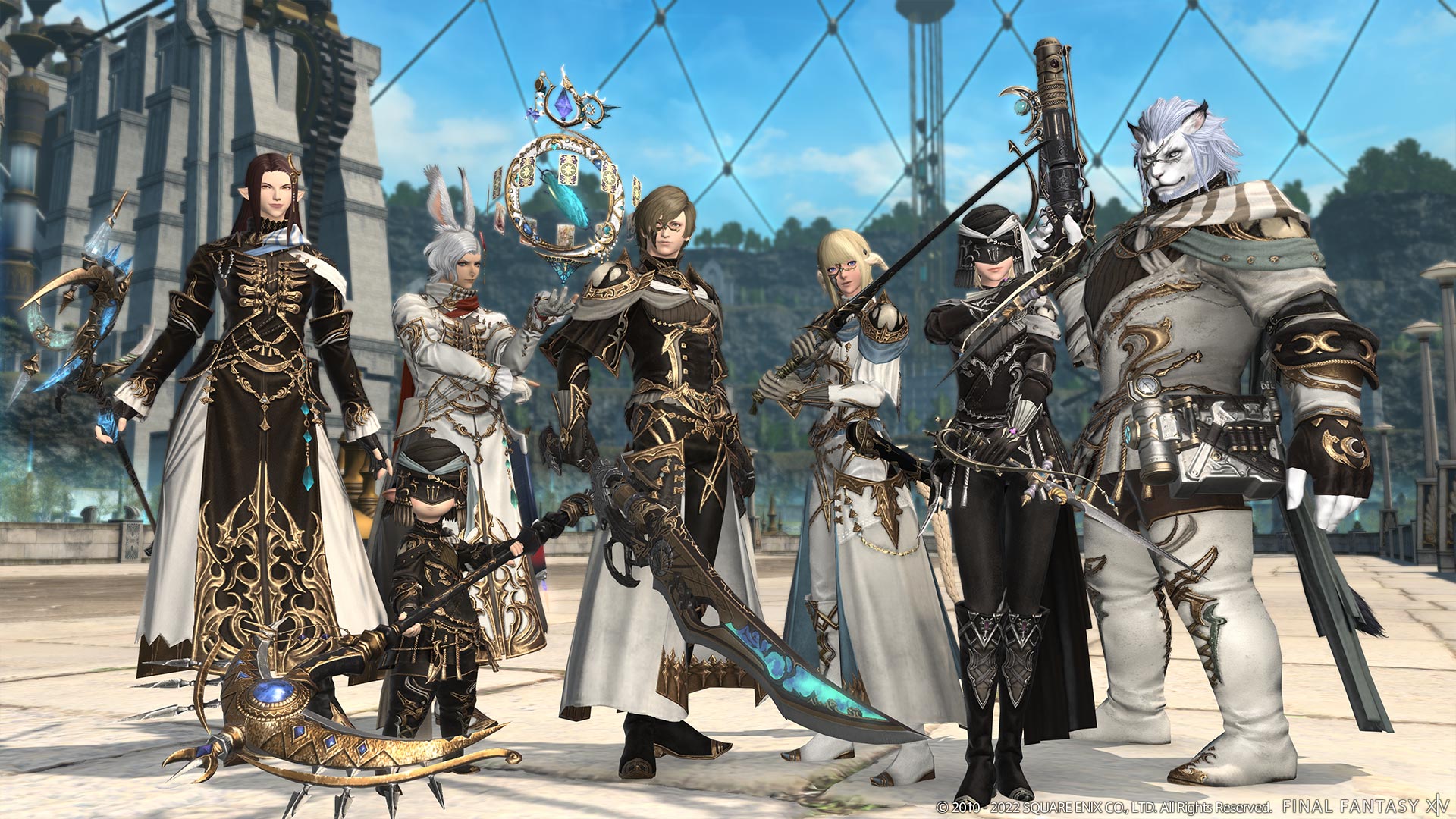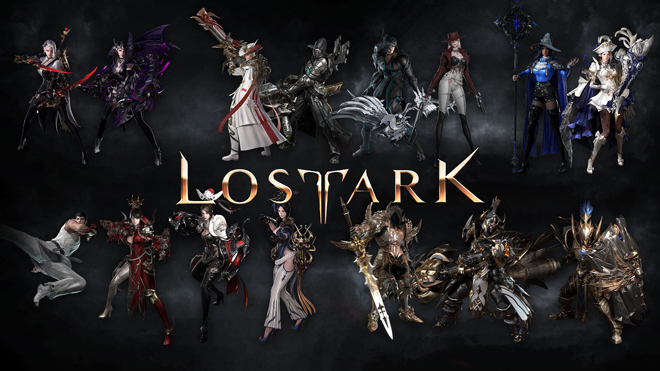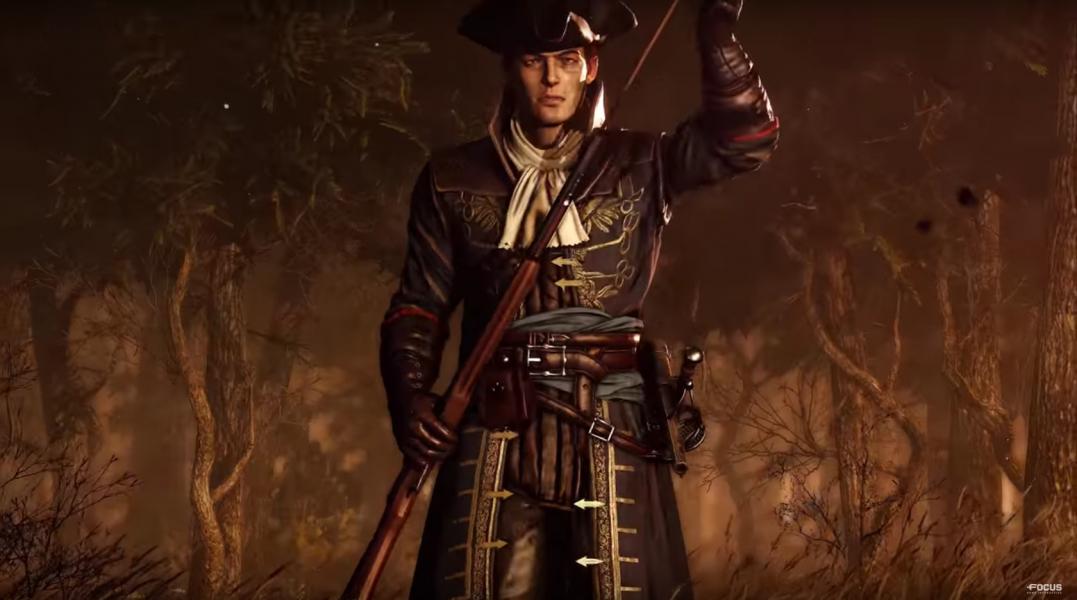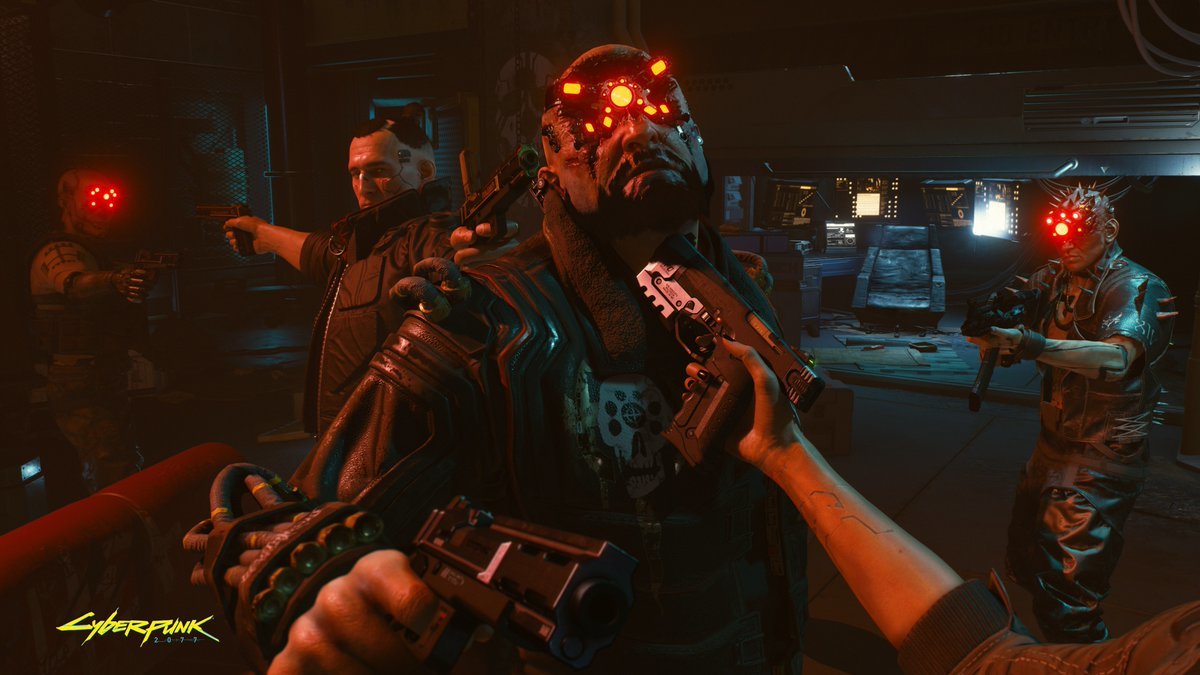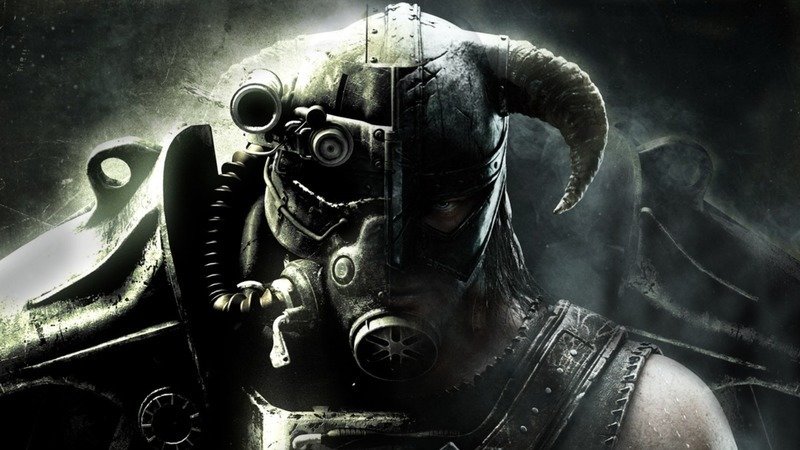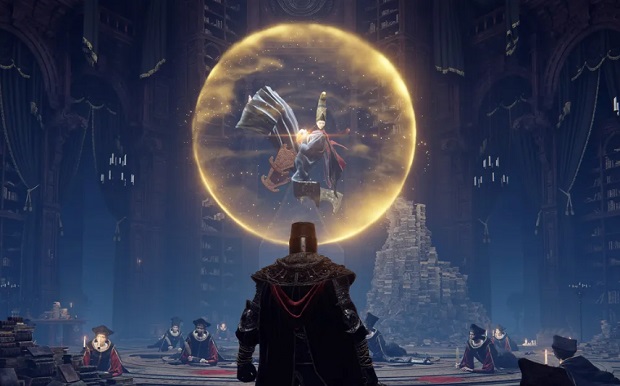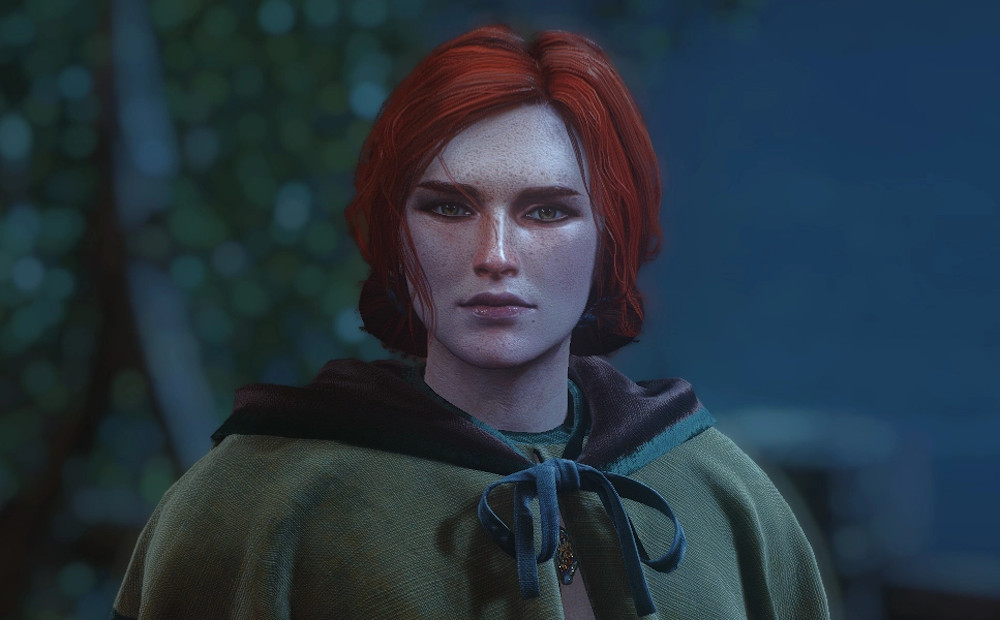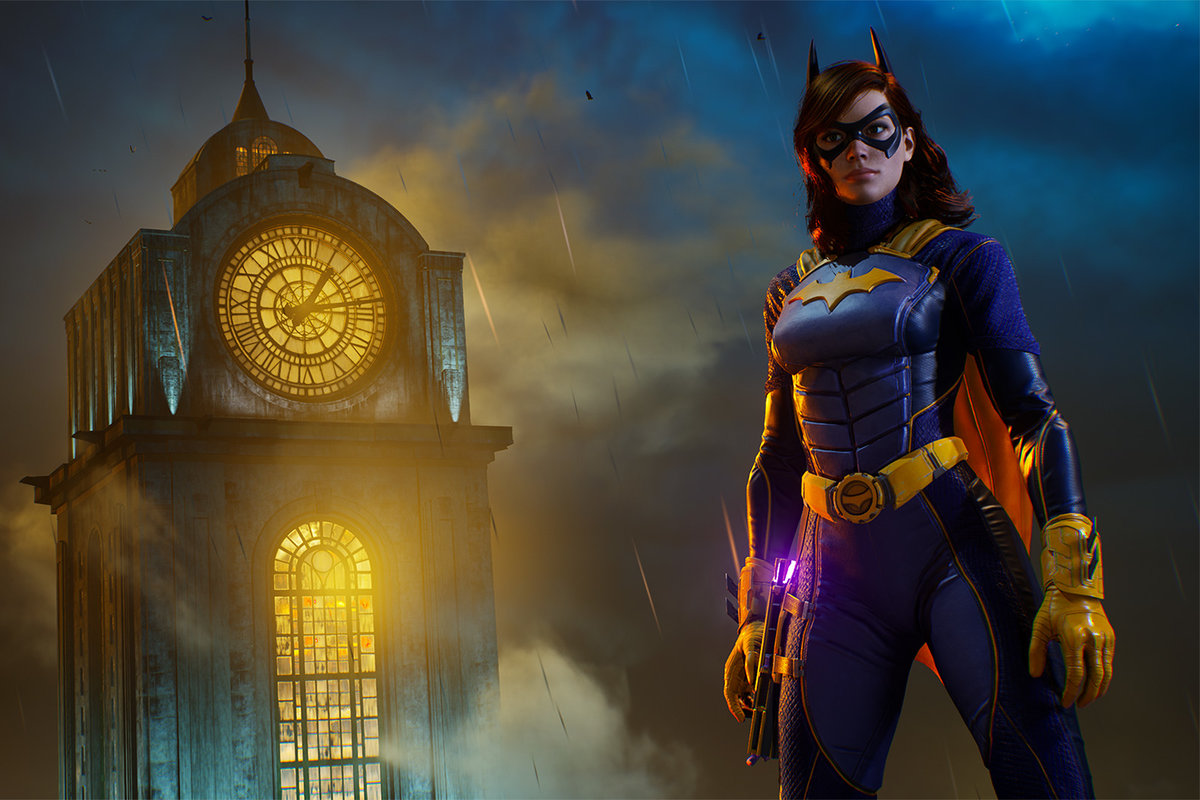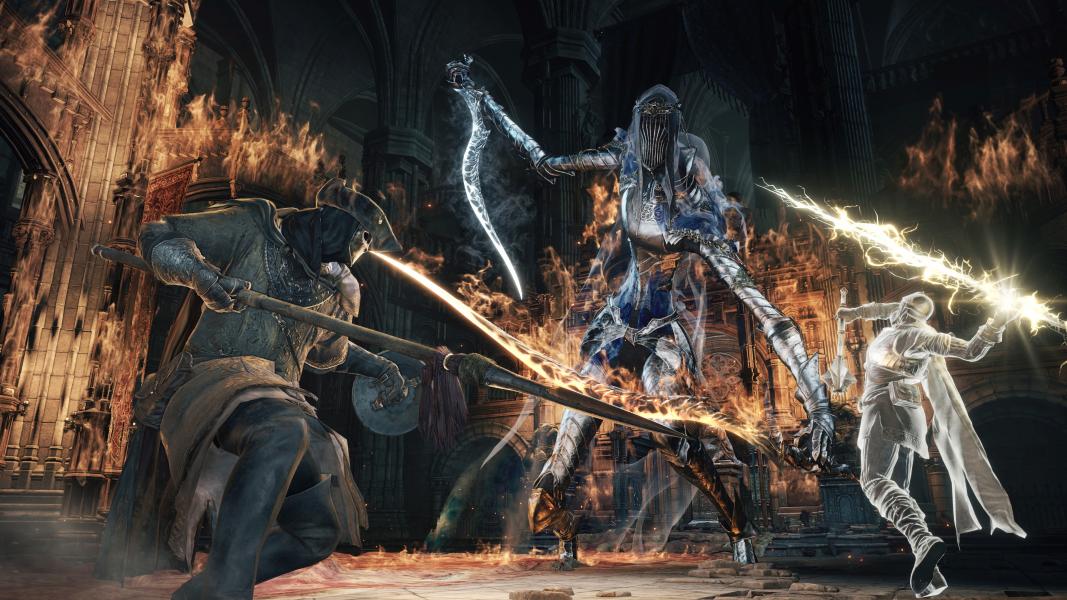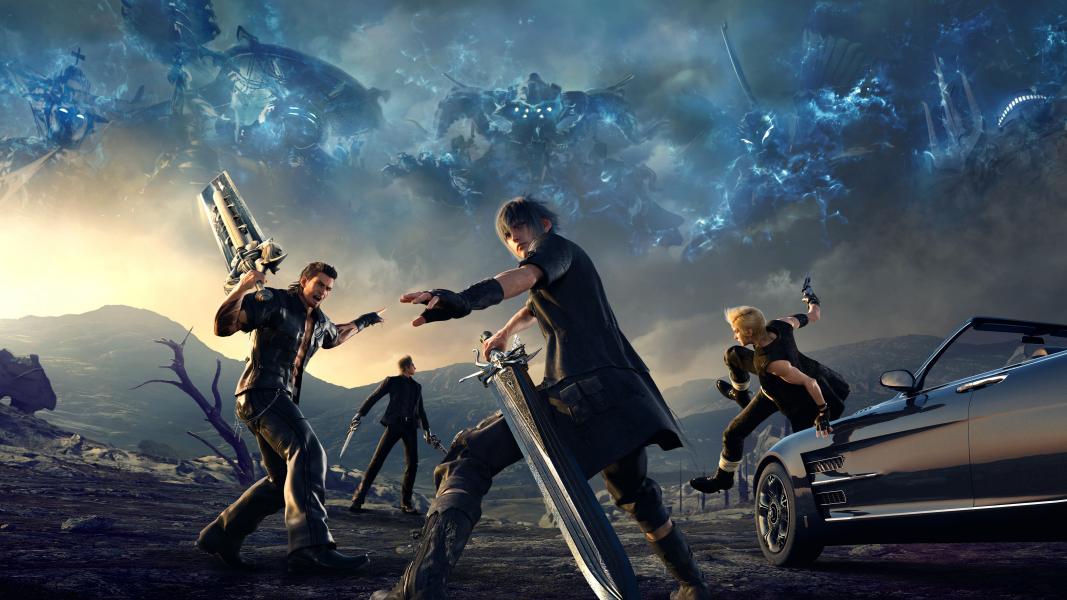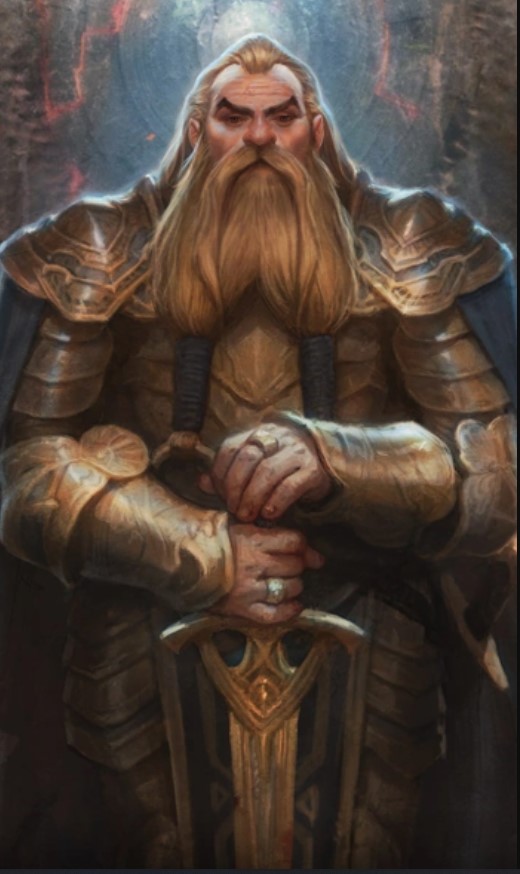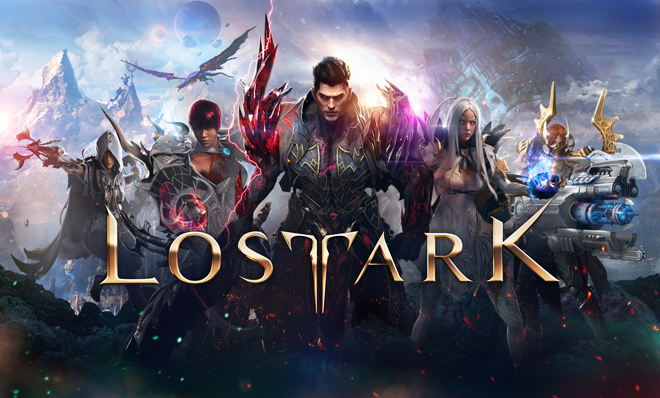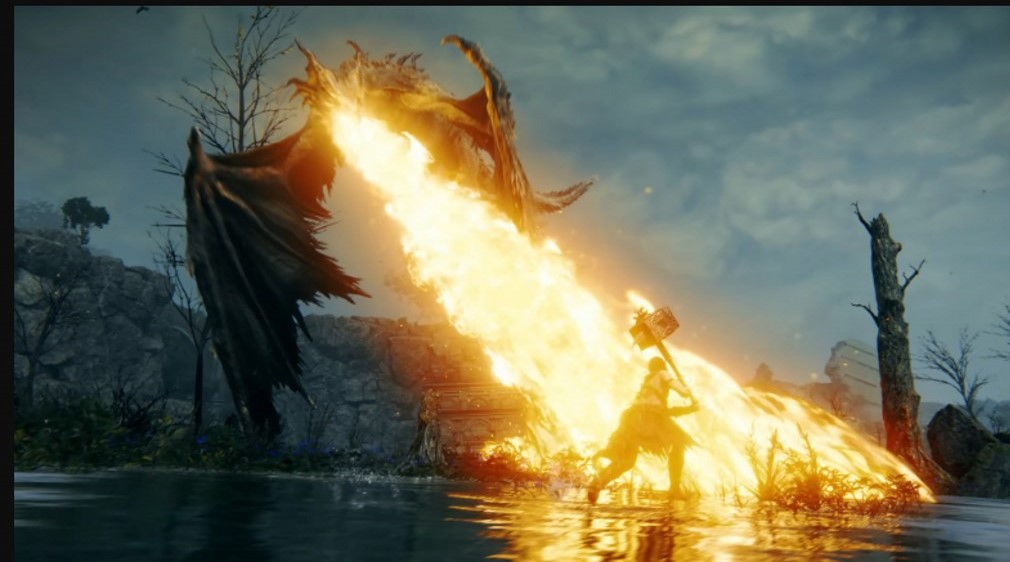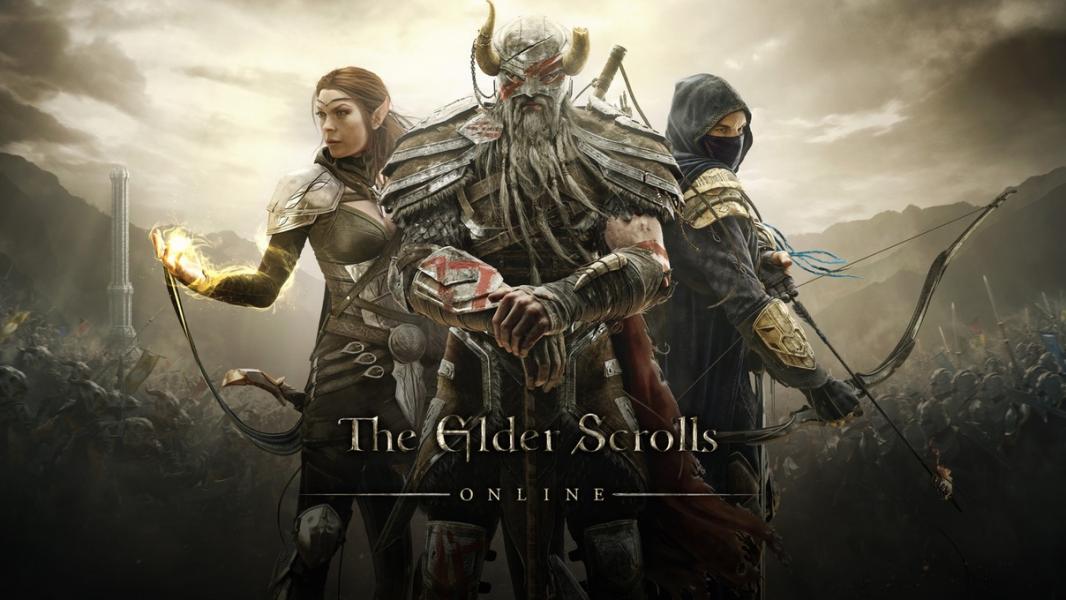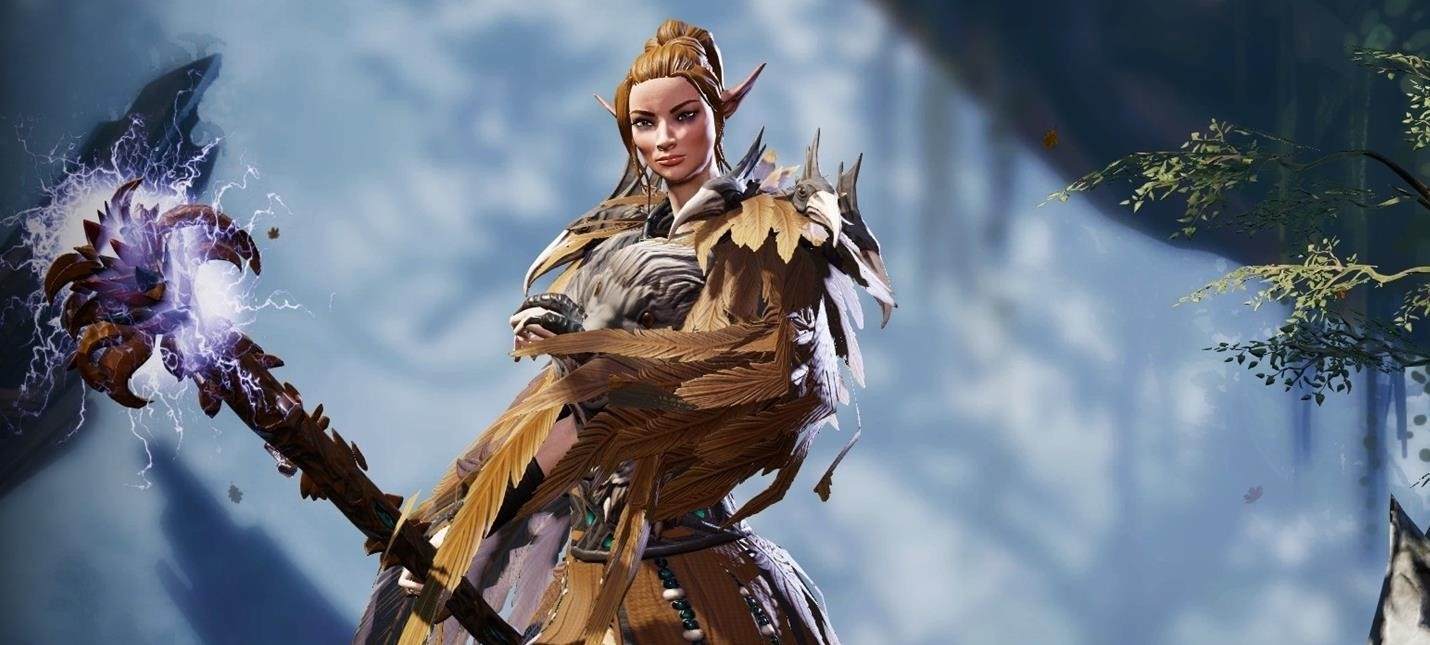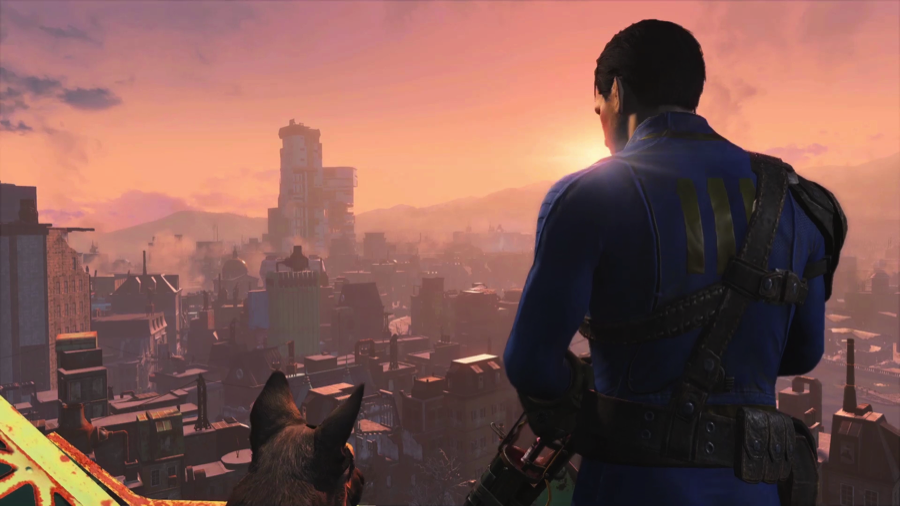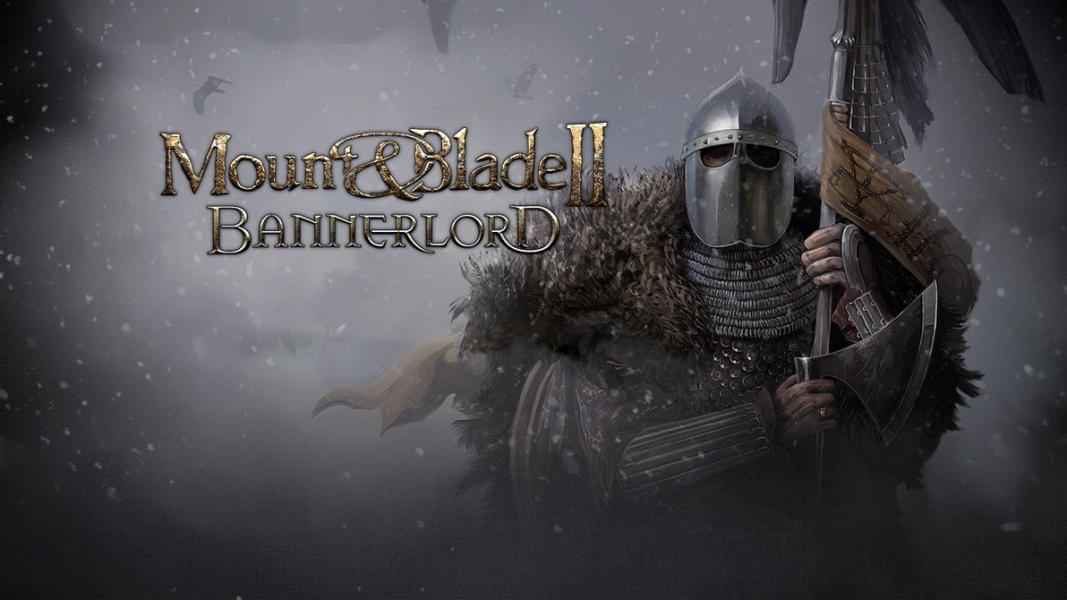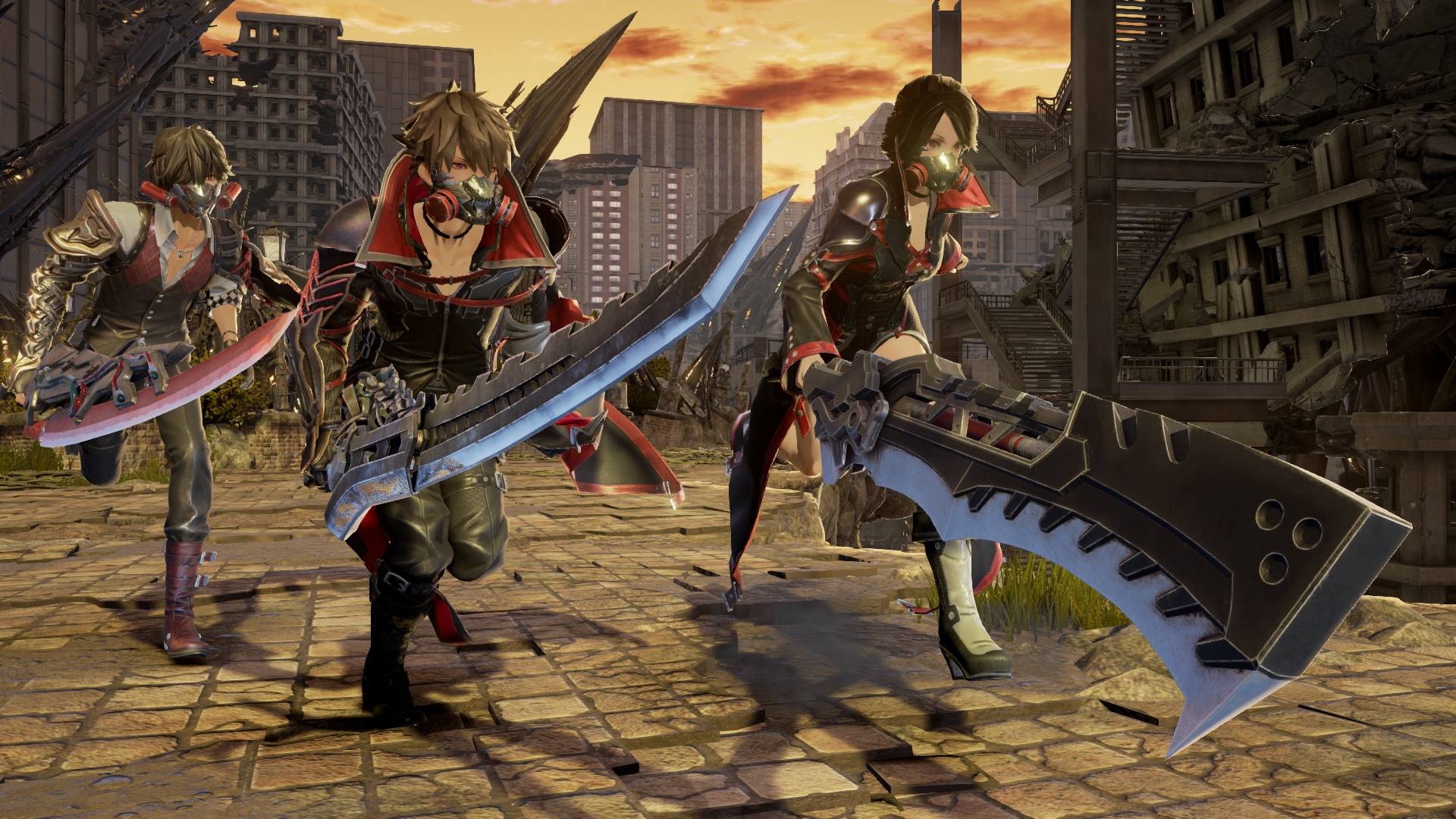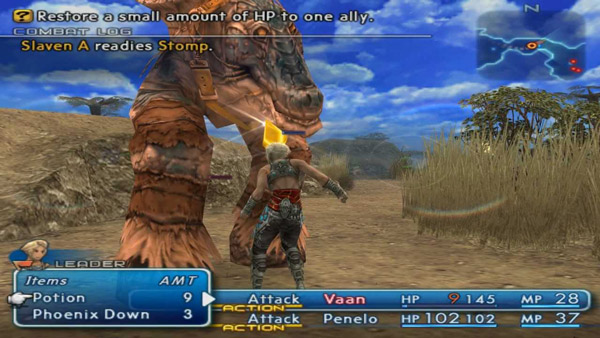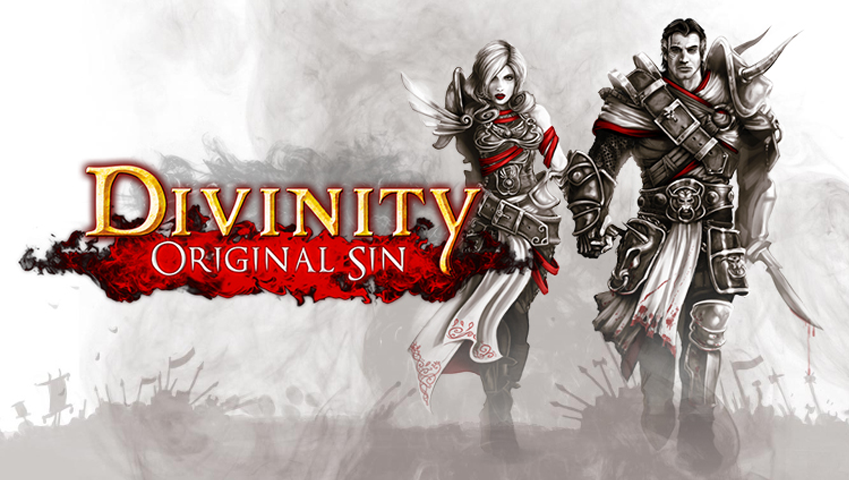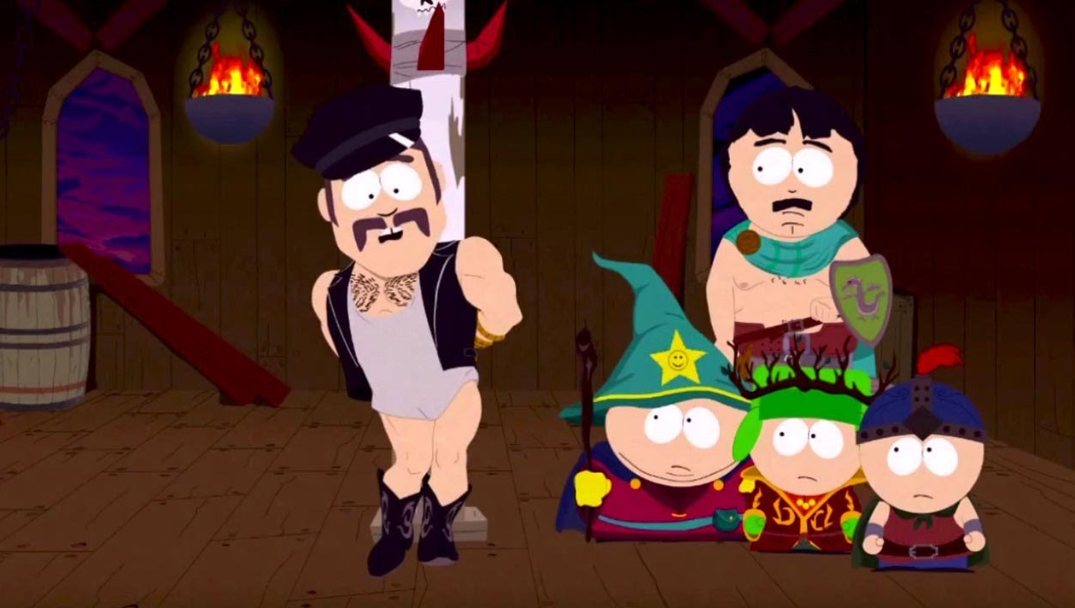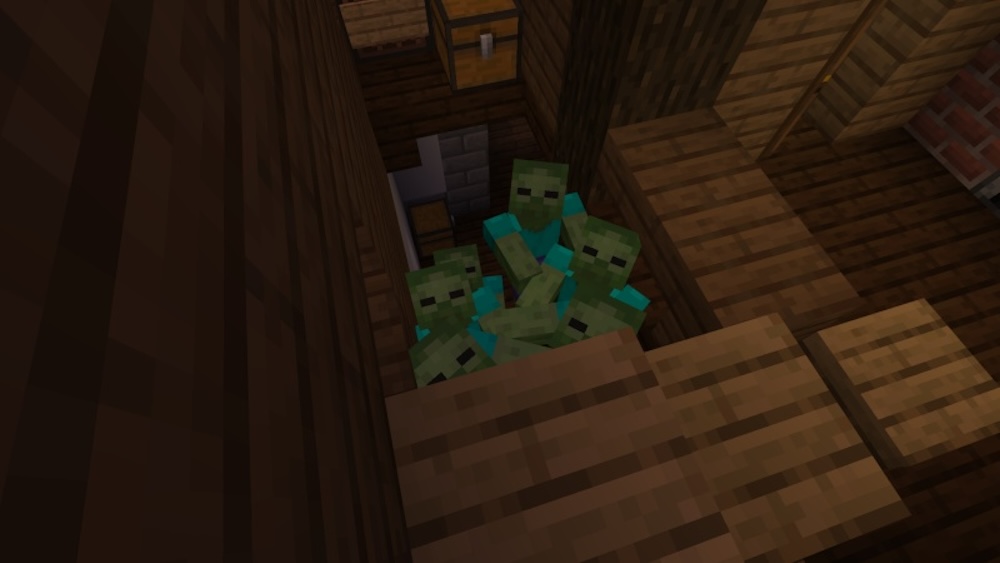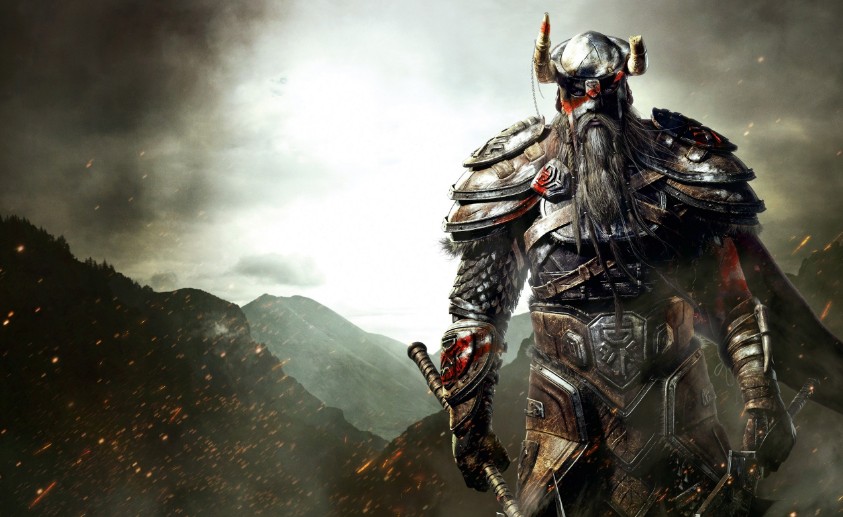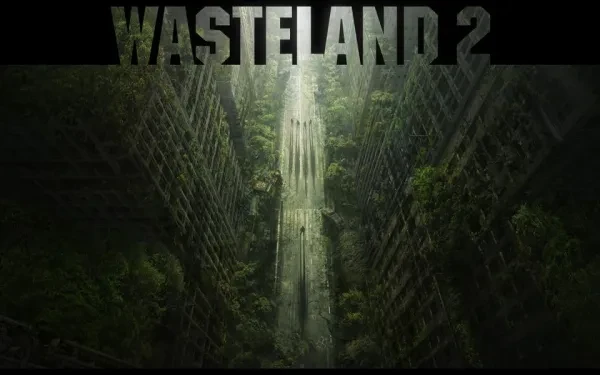
Introduction
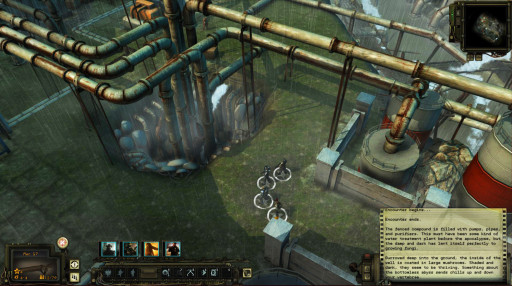
Old-world infrastructure is the key to rebuilding
Oh why, why did we have to wait so long for a game like this? Don’t get me wrong, I’m about as big a fan of Fallout 3 and Fallout: New Vegas as you’ll find. I have no qualms with the blend of real-time first-person-shooting with turn-based combat mechanics, nor with the very Elder Scrolls-y underpinnings of the games as a whole. In fact, I regard both those games as a sterling examples of modern computing horsepower used to move the RPG genre forward. And yet, somewhere along the line, publishers got the idea that the old isometric, turn-based style of RPG no longer had any place in the videogame market. Wasteland 2 is the ultimate refutation of that idea.
See, as great as Fallout 3 and New Vegas were—and I will defend that greatness against the accusations of any naysayer—there were certain compromises made in realizing an expansive, three-dimensional open world with 100% voice-acted dialogue. For starters, the amount of that dialogue had to be cut way down. I can’t comment on the original Wasteland, as I have yet to play it, but I have played the spiritual successors to that game in the form of Fallout and Fallout 2, and I really missed the open-ended conversation systems in those games. Instead of simply selecting a pre-defined question or response from a dialogue tree, players could query NPCs by inputting text; if the NPC in question recognized a certain keyword, they wold respond appropriately: “Oh, the Brotherhood of Steel? For all I know they could be a myth. From the sound of it though, they’re some kind of crazy technology-worshippin’ cult.” It’s just not the sort of luxury a game with voice-acting across the board can have, given how expensive voice acting is.
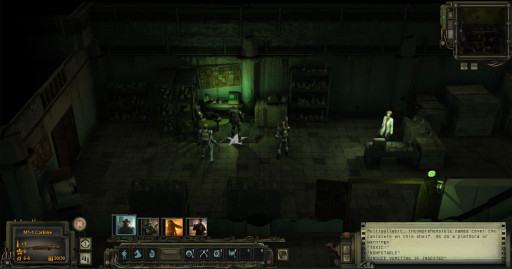
Scientists of the future are almost universally mad
Having a beautifully-realized 3D world with cinematics and all the fixings is also somewhat of a double-edged sword, in the sense that it creates the expectation on the part of the player for “show” rather than “tell”: Show me that the mutant is scowling at me as I pass by, rather than telling me. That’s fine, but there is something to be said for the ability of earlier RPGs to exploit the player’s own “theatre of the mind.” When the player’s imagination meets good, descriptive writing, it makes it more of a two-way street between creator and player; and sometimes what is imagined is just flat-out more interesting than what can be represented.
So as much as I love the new Fallout games, and as hyped as I am for Fallout 4, I am ecstatic that, after twenty long years, a true successor to the great post-apocalyptic RPGs of old has finally emerged.
Story
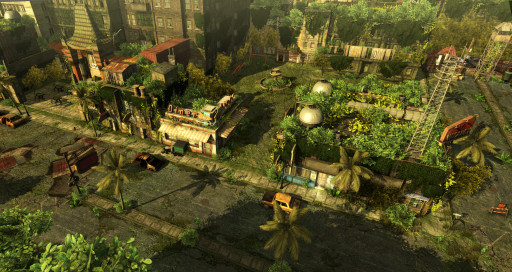
The city has been reclaimed by the green.
Wasteland 2 begins at the end, the end of human civilization following a global nuclear war in 1998. The survivors of the nuclear holocaust were few, and mostly confined to Earth’s more remote regions.
The Sonoran Desert was one of the few regions on Earth that was spared enough of the nuclear destruction to remain somewhat habitable for human life in the aftermath. But even though the region did not suffer the worst of the radioactive fallout, the already-inhospitable conditions were magnified to such an extent that the pre-war survivalist communities living there were forced to seek shelter in a newly-constructed prison in order to survive.
Of course, the prison’s existing population had to be expelled, and that’s where a company of U.S. Army Engineers came in: They stormed the prison, drove the inmates out, and invited the survivalists in.
Over the years, the two populations merged and began trying to rekindle some small flame of civilization in the wastes. But there were wolves both within and without those walls, and someone needed to defend the flame: The bravest among them stood up and dubbed themselves Desert Rangers.
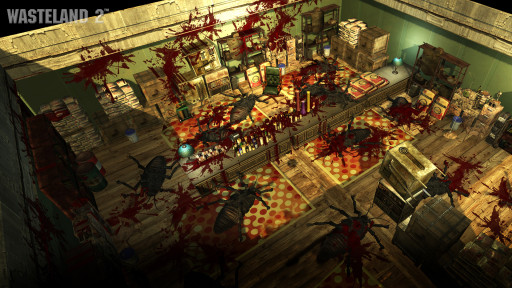
The bugopalypse
In the last game, the Desert Rangers put down a fiendish AI that was trying to wipe out the remnants of humanity with its army of homicidal machines and inhuman cyborgs. In so doing, the Rangers pulled humanity back from the very brink of destruction, but their own numbers were depleted in this, and other operations.
Some fifteen years on, you take control of four new recruits to the Rangers’ cause, and are promptly dispatched to investigate the source of a radio broadcast that seems to indicate a new threat to mankind in general, and the Rangers in particular.
Characters
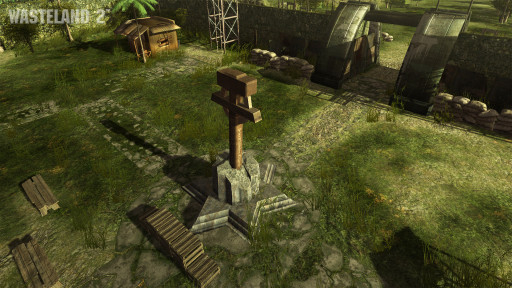
Reconstruction is underway
My crew and I had an exceedingly rough time after leaving the Ranger Citadel for the first time. We talked our way out of our first run-in with a group of Mad Max rejects hanging around an antenna station we were supposed to hook some gizmo up to, but our second run-in with a far less agreeable gang of cutthroats left us bruised, battered, and running low on meds and ammo alike.
We managed to limp back to Ranger HQ nursing our wounded pride as much as our wounded everything else. And after spending our last dollar replenishing ammo, trauma kits, and med-packs, I had to face the grim realization that there would be no coming back from another disaster like that. But what else could we do? We started scavenging around the HQ, looking for anyone and anything that might increase our odds of surviving the next journey outside the Citadel’s walls.
That’s when we spotted a tall woman in her early forties, standing alone and forlorn near a row of makeshift grave sites. She wore the garb of an experienced ranger, and her scars testified to her having earned it. We approached her and started talking. She was hesitant at first, reluctant to engage us, but when the topic of our mission to recover one of her fallen Ranger brethren came up her eyes shone with a terrifying fury. With gritted teeth, she did not request, but instead demanded that she accompany us.
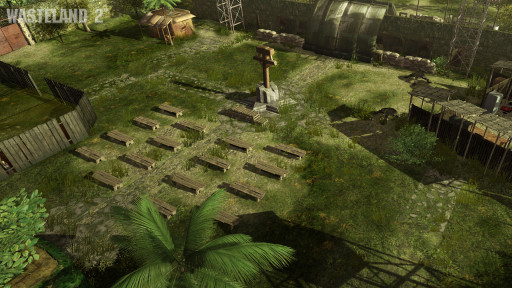
Not many people turned out for the big speech
The difference between the seasoned vet, Angela Deth, and us scrubs couldn’t have been plainer. Taking a single shot would almost always result in one of us coming awful close to taking a dirt nap, but it just seemed to make Angela mad. She was a one-woman killing machine, and that machine let us blaze through whole tribes of raiders with impunity.
As we carved our way through the wastes I began to suspect that Angela didn’t quite respect my authority as team leader. She seemed to take exception to my preference for asking questions first and shooting later, and when the shooting did start Angela had a habit of flying into a frenzy and disregarding my orders completely. I didn’t want to seem weak in front of the other scrubs, but we couldn’t afford to lose Angela either; instead, I doubled down extra hard on improving my leadership skills, and eventually won Angela’s respect, and thereby her obedience.
I hope the above vignette gives some insight into the sorts of wonderful character interactions you can expect from Wasteland 2 (I say “sorts”, because your interactions will not be the same), because they took me completely by surprise. After clicking New Game for the first time and learning that I could create four characters of my own I gave up any hope of adventuring with characters who had their own dialogue, backstories, and so on. Fortunately, Angela proved me wrong on that count, and I later learned that there a lot of other recruitable characters out there, and up to seven of them could be in your party at any given time.
Character Customization
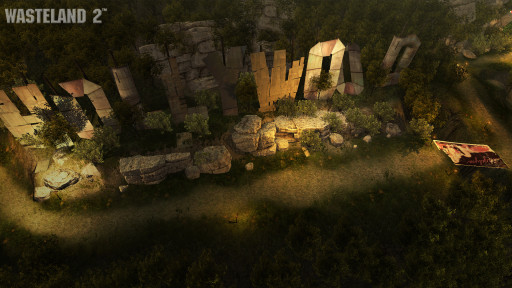
You can still see the Hollywood sign! Most of it…
RPG nerds like myself will find the bevy of skills to master and stats to tweak a real “grande buffet”. So much so, that they might be tempted to spend the considerable amount of time it takes to create all four of their starting characters from scratch.
Being somewhat impatient myself, I elected to round out my team with three of the premade characters after handcrafting my main. I ended up creating a silver-tongued Southern belle with strong leadership skills and a penchant for falling back on submachine guns when words fail. I also made sure she had a boatload of charisma to assist in her butterin’-people-up endeavours, a goodly amount of perception so she could spot a threat before it spotted her team, and enough intelligence so that she would pick up new skills quickly.
As a Fallout veteran, I figured there would probably be an abundance of old-world machinery that might need hacking, so I picked up a computer skills specialist, and set her up with some energy-weapon proficiency for turning hostile robotic types to scrap metal. I also picked up a medic who could fix just about any battle wound in the field, and even heal major injuries given the time, though she wasn’t much in a fight. Our heavy hitter, and general all-purpose problem solver was a sniper by the name of Cold Eye, and he proved his worth many times over when things looked the most dire.
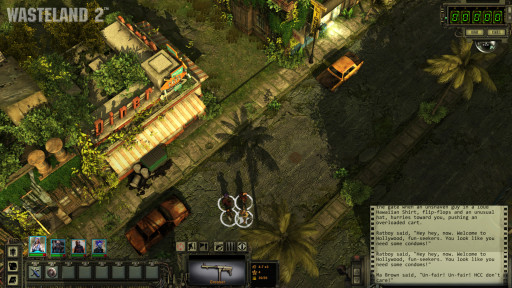
The term "urban jungle" has never been more appropriate
None of the above choices were easy, though. There are just so many skills to choose from, with so many potentially-lifesaving uses that having to make sacrifices can be agonizing. Not knowing exactly what I was going to be stepping into, I tried to make the most pragmatic-seeming choices I could, but I later learned that even outlandish-sounding skills like “toaster repair” could come in handy; to say nothing of skills like “animal whisperer”, which can be used to summon the ravenous beasts of the wasteland in your hour of need.
World
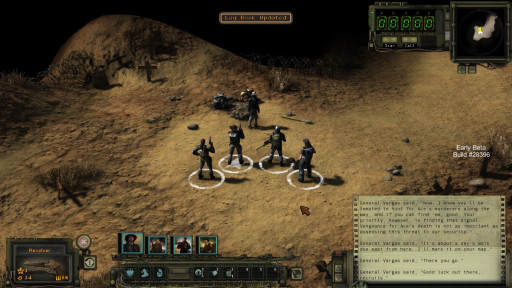
It may look barren, but the desert conceals untold treasures for those who know how to seek them
The world of Wasteland 2 is every bit as harsh as the title would imply. The Arizona Desert, where the first portion of the game takes place, is full of marauding raiders, fearsome mutated wildlife, and even carnivorous plants. But even outside of the things that are actively trying to kill and/or eat you, the environment itself can be extremely hazardous to one’s health. Heavily-irradiated areas will liquefy your internal organs in short order if you’re not wearing suitably protective gear, and you’d better hope that there’s an oasis nearby if your canteen runs empty.
Later on, your journey will take you to the ruined megalopolis of Los Angeles. A city of ruins overtaken by verdant greenery and pooled shadows that conceal mutants, fanatics, and worse. Unlike the desert, L.A. is short on wide open spaces, meaning that you and your crew are far more vulnerable to being ambushed and cornered than you were when you had the horizon to run to. Caution ends up being the key to survival.
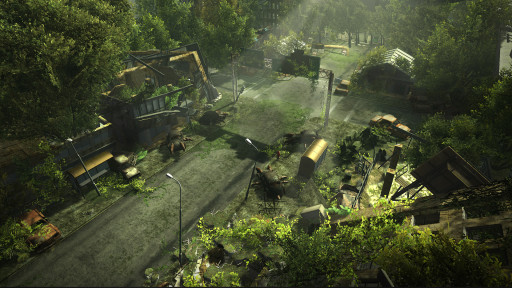
Look closely at the car wrecks…
In such a harsh world, it helps to make all the friends you can, and in both Arizona and L.A. you will find a number of fledgling human settlements that you may be able to negotiate with for shelter, refuge, and supplies. Your success in doing so will largely depend on how well you’re able to adapt to the peculiar micro-cultures of each community. The “Mannerites”, for instance, will not broke the presence of anyone who shows the slightest sign of impoliteness or coarseness. Other communities will want your actions to speak louder than words—especially the ones down on their luck. Whether you come as saviour or slaughterer is, of course, up to you: You might just decide to put everyone in Hardluck Town down, and make off with their few remaining earthly possessions. The game won’t stop you, even if your companions might.
Gameplay
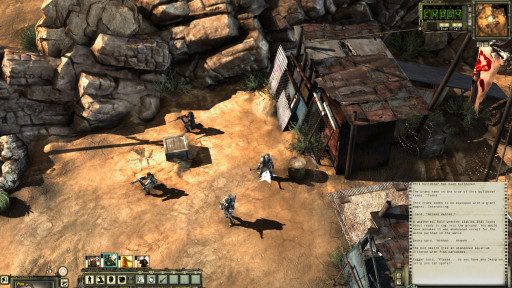
Long shadows in the noonday sun
Some have criticised the turn-based combat of Wasteland 2 for being overly simplistic, but I’m afraid that I can’t get on board with that. Yes, it’s true that before a number of balancing patches were released for the game (and more are both still needed, and allegedly on the way) it was possible to steamroll one’s way through the game simply by sinking enough points into assault weapons and click, click, clicking everything dead. If that’s the way one chooses to play, the boredom that follows should not come as a surprise to anyone.
For my own part, I only played Wasteland 2 briefly on release, and picked it up again after the game had been patched several times. My experience was of a game that rewarded a team composed of varied oddballs, and genuine X-COM-esque tactics.
Putting your sniper and assault rifle specialists on the second floor of a building while the rest of your squad lures the enemy within range is a great idea, but the enemy can make use of the rocks, crates, and old wrecks for cover in exactly the same way you can. That’s where having a knife-wielding maniac with high movement points to flush them out of cover comes in handy, as does a medic to patch up said maniac when he inevitably finds himself riddled with buckshot.
Another reason that having, at the very least, a good assortment of weapon types covered is that ammo is vanishingly scarce in the world of Wasteland 2. Three snipers backing you up might seem like a good deal, but sniper rounds are rare, and with three of them drawing on your reserves you can bet that your stockpile is going to dwindle down to nothing in a minute. Oh, and when robots show up, you’re going to be grateful that someone was packing energy weapons. Just saying.
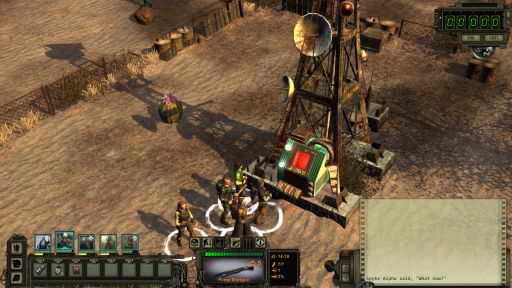
Having someone along who can repair doodads like this is a good idea
But combat isn’t even almost the entirety of what Wasteland 2 has to offer. Exploration is a huge component of the game, and you’ll need to do plenty of it in order to make sure that you’re adequately armed and supplied. It’s a scavenger’s world out there, and you best be prepared to deal with both the rewards and consequences of unearthing what time and war has buried.
Speaking of consequences, Wasteland 2 loves them. It loves presenting you with choices, and then slapping you upside the face with consequences, both immediate and far reaching. Take for instance one of the earliest “big decisions” that will come your way. You’ll be heading out into the wastes to track down a couple of promising leads regarding the death of one Ace: Newly-deceased ranger veteran. One of those leads points to an experimental food and agricultural production facility called The AgCentre, the other to a sizeable human settlement dubbed Highpoint. On your way there, Ranger HQ will get in touch to inform you that both of these locations are in crisis. The staff at the AgCentre are being eaten by their own plants, and Highpoint is under siege by unusually well-organized raiders. You can’t be in two places at once, so you have to choose; with fully knowledge that whoever you don’t immediately help probably isn’t going to make it.
The choice and consequence in Wasteland 2 is very robust, and is one of the things that makes every player’s journey feel unique. It also provides a huge incentive for those of us who always ask “what if I’d done this instead of that” at the end of a game to go back and try an alternate path.
Graphics
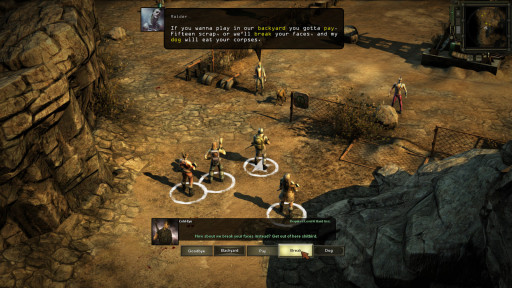
Don't let 'em shake you down
Nobody ever said that the post-apocalypse was pretty, but Wasteland 2 could have done with a little more graphical refinement. Textures are not terribly sharp, character models don’t look so great up close, and lighting lacks subtlety. Everything just looks a little washed out, a little bland, and some environmental assets are overused to say the least.
On the upside, the game runs extremely well on a wide range of hardware, and for an Indie game with turn-based combat, the combat animations are much better than I was expecting. Characters move convincingly across terrain, scale ladders fluidly, flatten their backs against cover you position them against, and just generally behave in a lifelike way. And true to the legacy of the original Fallout games, death animations are suitably over the top, with gallons of claret gushing from unfortunates who find themselves bisected, decapitated, de-limbed, or liquefied by energy weapons.
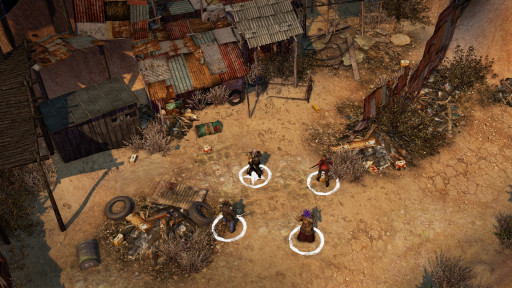
In the wasteland, trash is every man's treasure
And although it won’t be a big deal for some, I really appreciate the amazing job inXile did with the character portraits. They have a suitably old-world meets dystopia charm to them, and I had a lot of fun thinking about my dainty, painty Southern belle roaming across the wastes with a submachine gun concealed in her corset
Price
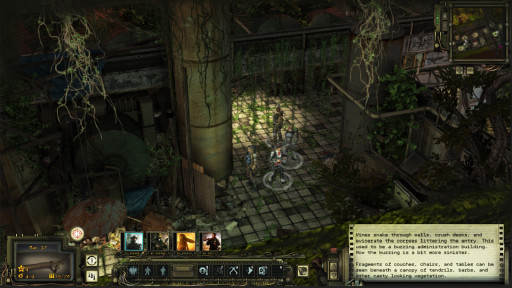
Deep beneath the city streets
The Wasteland 2 – Classic Edition retails for $39.99 USD on Steam, and comes with a copy of Wasteland 1, the Wasteland 2 sound track, and a digital art book.
The Digital Deluxe Edition includes all of the above, plus a copy of The Bard’s Tale, and a set of three digital novellas set in the Wasteland universe. It retails for $59.99 on Steam.
Neither of these editions pack any DLC, and inXile have scoffed at the very notion of releasing paid DLC. They do, however, have a Game of the Year Edition in the works that will pack in a whole lot of improvements to the game for no additional cost to existing owners.
Verdict
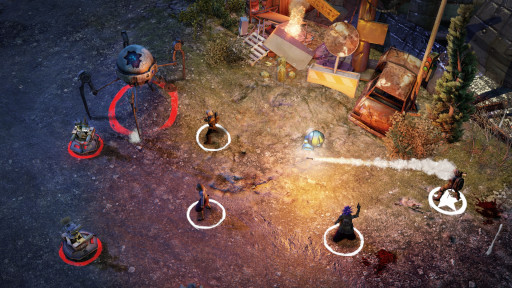
It takes serious firepower to deal with robotic foes
Over my many years of computer and console gaming I have seen many a long-awaited project fizzle on release as it fails to live up to expectations built up over years of anticipation. Wasteland 2 is one of those rare examples of a game that, despite its pedigree and the almost impossible-to-fulfil expectations placed upon it, manages to amaze even the crustiest, saltiest, and most cynical of RPG aficionados like me.
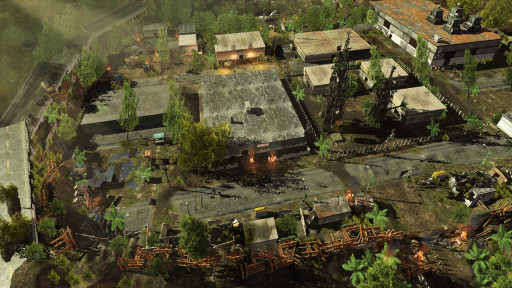
Towns without heavy fortifications are soon picked clean
In figuring out whether the game is for you, though, I urge you to think about what you look for in an RPG. If it’s min maxing and loot vacuuming (not that there’s anything wrong with these), Wasteland 2 is most definitely not going to be your cup of tea. If, on the other hands, an RPG is more a vehicle for you to tell your own story using the expertly-crafted storytelling assets of a superbly well-realized world, there are few games that I would put ahead of Wasteland 2—perhaps none.
Final Verdict: 9/10
Trailers
The launch trailer


